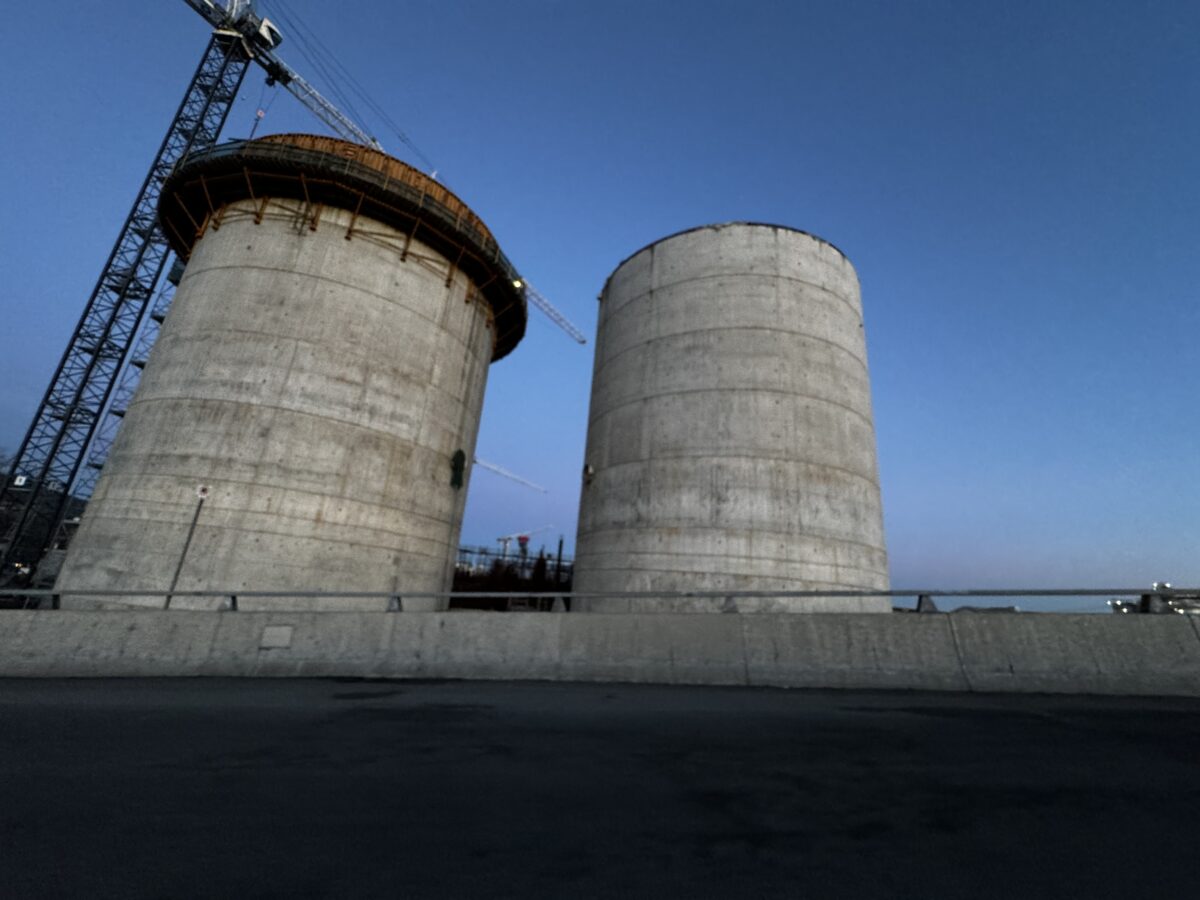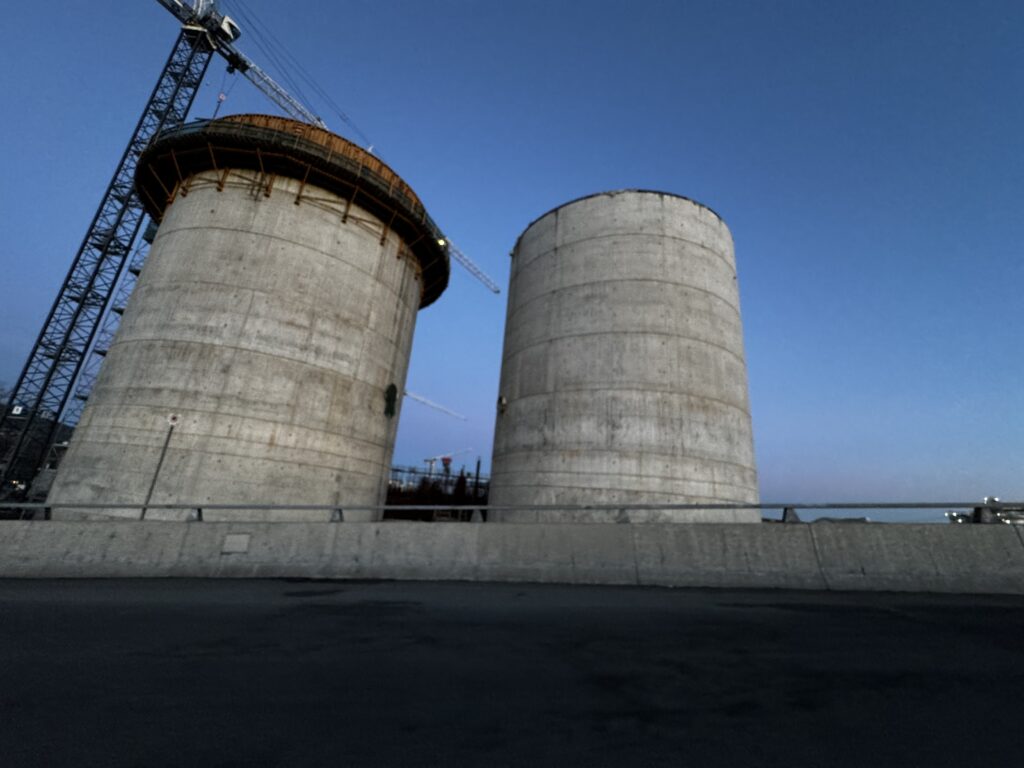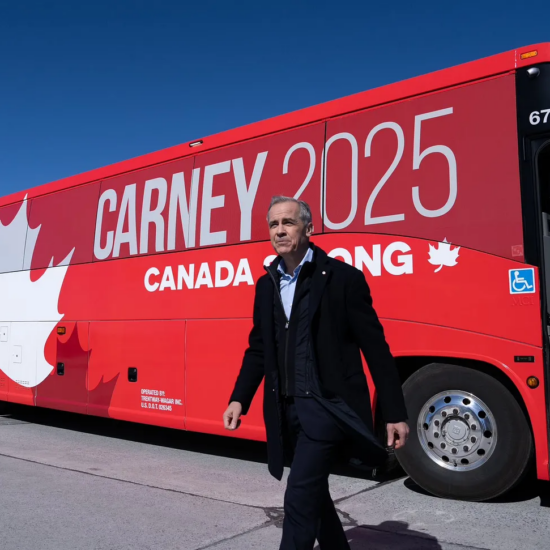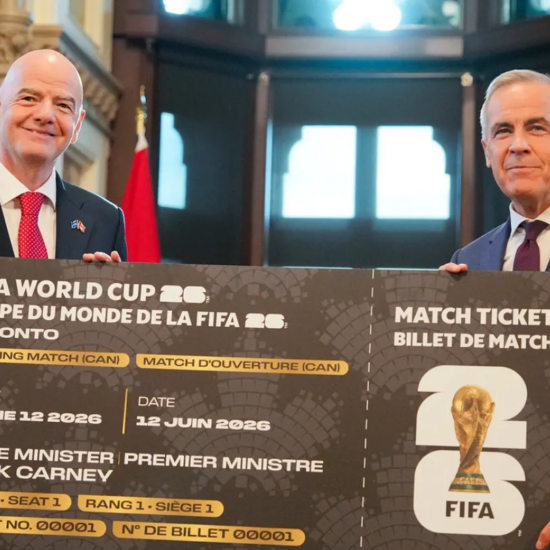
Bob Mackin
By the end of October, the North Shore Wastewater Treatment Plant had gone through almost 61 percent of its approved budget.
Metro Vancouver’s monthly project status report, obtained under freedom of information, said $644 million of the $1.058 billion budget had been spent. It was the only aspect of the project with a cautionary yellow rating, meaning “delayed – objective at risk, no delay to other dependencies, monitor.”
That is a difference of only $46 million since April, when the monthly status report said the project reached $598 million.
A copy of the most-recent report was requested Dec. 18 and disclosed Jan. 24.

North Shore Wastewater Treatment Plant (Mackin)
There were no safety incidents reported in the month of October. Prior to the month, there had been 22 incidents in 2023, including 10 requiring first aid and nine classified as near misses.
“Ongoing work in all approved work areas,” it said. “95 percent of identified concrete deficiencies complete. Ongoing negotiation of construction contract with PCL, including expanded early works scope.”
Under monthly highlights, the report said builder PCL was conducting ongoing repairs of existing concrete deficiencies. Engineer AECOM was involved with ongoing identification and implementation of corrective actions from internal audits. They were holding weekly construction quality meetings, but no non-conformance reports were initiated in October. To date, the project generated six, of which four remained under investigation.
The report, however, did not say how much it would cost to finish the project or when it will open.
The B.C. and federal governments granted $405 million and the Greater Vancouver Sewerage and Drainage District contracted Spain-headquartered design/build/finance specialist Acciona for $525 million. The price tag was announced at $700 million in 2018, with completion scheduled for late 2020.
Last September, Glacier Media reported that the project cost could climb as high as $4 billion.
Metro Vancouver struck a task force to meet monthly between November 2023 and March 2024 in order to recommend to the board a new budget and procurement schedule. But the committee operates with an unusually high level of secrecy.
“Unless the task force chair [Metro Vancouver chair and Delta Mayor George Harvie] indicates otherwise, given the confidentiality and sensitivity of issues and information discussed, the task force meetings will be closed,” state the terms of reference. “Further, unless otherwise indicated by the task force chair, the meetings, including all documents, discussions, and information, are privileged and confidential, and are not to be disclosed or discussed outside of the meetings with anyone who did not attend the meeting.”
Additionally, any municipal staff attending task force meetings must sign a non-disclosure agreement.
It is not stated explicitly in the terms of reference, but the secrecy is undeniably connected to the $250 million breach of project agreement lawsuit Acciona filed in 2022. Metro Vancouver countersued for $500 million. A case planning conference is scheduled for Feb. 26 at the Vancouver Law Courts.
B.C. Supreme Court filings in December 2022 revealed that Acciona learned one of its employees, a bureaucrat’s daughter, took photographs of the confidential report to the Metro Vancouver board that recommended terminating Acciona.
That employee, Anika Calder, shared images with at least four co-workers after she visited her father, Coquitlam city manager Peter Steblin.
Steblin, who retired in early 2023, used log-in credentials belonging to GVSDD chairman and Coquitlam Mayor Richard Stewart in order to access the report.
Before last Christmas, top officials turned over their devices as part of the ongoing legal battle.
Metro Vancouver spokesperson Jennifer Saltman called the document/record collection process “a routine part of litigation.”
Support theBreaker.news for as low as $2 a month on Patreon. Find out how. Click here.











